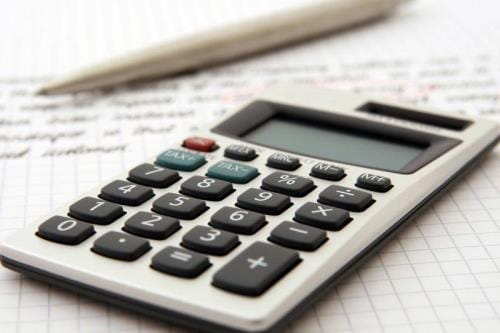Study Tips

The internet is full of videos on varying study methods (some more complicated than the tests you’re studying for). To simplify things, we’ve gathered our favorite tips that you can mix and match--or use them all--to up your studying game and get more done in less time.
Our Best Study Tips for College
Take Handwritten Notes
Taking handwritten notes vs typed notes is more effective at helping you remember something. When someone takes handwritten notes, they usually digest and then summarize what has been said. On the other hand, when someone takes typed notes, they are more likely to type verbatim and not absorb what they are being taught as effectively. That is because writing something down involves “deeper cognitive processing of the material than typing it.” So leave your laptop at home and take notes old school. The more material you know, the less you will have to study.
Rewrite Your Notes
I had a professor who allowed you to bring in one 3x5 index card of notes to a test, whatever you could fit on it, both sides. He did this, because he found students spent so much time cramming information on to that card that they were studying in the process, and rarely needed to refer to it.
Rewriting your notes is a great way to prep for tests. By rewriting or reorganizing your notes, you are reviewing all of the material, and physically writing it down helps you to remember it. Not only will you end up with a great study guide, but you’ll remember much more of the material simply because you re-wrote it.
How to Approach Studying
Study Without Distraction
Recent research shows that the typical student is “distracted for at least five out of every 15 minutes they set aside to study.” That means for every hour you study, twenty minutes is spent not actually studying. That distracted time? Typically spent texting or on social media (but you probably knew that).
Here are a few ways to limit distractions while studying:
- Find a suitable place to study
- If you focus best in quiet, head to the library. If you like background noise, maybe a café or the student union is a better place for you. If you like to listen to music, have your study playlist ready.
- Keep your phone on silent and out of site
- If you love your phone as much as I love my phone, you know it can be a HUGE distraction.
- Check social media before you start studying
- If you can’t stop thinking about your Instagram or TikTok, give yourself a solid ten minutes to poke around on social. Get it out of your system before you start studying.
- Turn your WiFi off
- If you’re using your computer to study, turning off the WiFi makes it that much harder to just “hop on the internet.” Download what you need to study and then turn off the WiFi so the temptation is gone.
Short, Intensive Study Sessions
Study by quizzing yourself for brief uninterrupted periods (30 to 45 minutes). You are more likely to retain the information from several focused 45 minute sessions, rather than a multi-hour cram session full of distractions. According to The Learning Center at UNC Chapel Hill, “Intensive study sessions are short and will allow you to get work done with minimal wasted effort. Shorter, intensive study times are more effective than drawn out studying.” Break up the material by topic to make studying in short sessions easier.
Drink Water
Brain cells require hydration to function efficiently, and dehydration can affect both short-term memory function, and long-term memory recall. So make sure to stay hydrated while studying to keep your brain at peak performance.
Let Your Brain Do Its Thing
Now that you have studied and you’re well hydrated, the best thing you can do is get a good night’s sleep. Let your brain do its work filing away the information you fed it during the day.
Study Tips for Finals
When it comes to finals it’s time to implement all of the tips above as well as that age old advice from mom: stop procrastinating.
Start Preparing Ahead of Time
If you implement the strategy of studying in short, intensive bursts you won’t be stuck cramming at the last minute. Last minute cramming is a less effective way of studying, and bound to cause more stress, which in turn affects sleep, which affects memory (see where this is going?).
Avoid Alcohol
Alcohol impairs memory, so as much as you may be tempted to have a little sangria while you’re studying (especially as the semester is winding down), it could turn your study session into a waste of time.
Utilize Office Hours
Take advantage of office hours to get your questions answered before the exam. This may include material you don’t understand, or the essay expectations, etc.
Make Flashcards
You’ll be prepared to quiz yourself or have a roommate or friend quiz you, and they are an easy thing to keep on you at all times to squeeze in studying while you’re on public transit, in a ride share, or waiting at the dentist.





